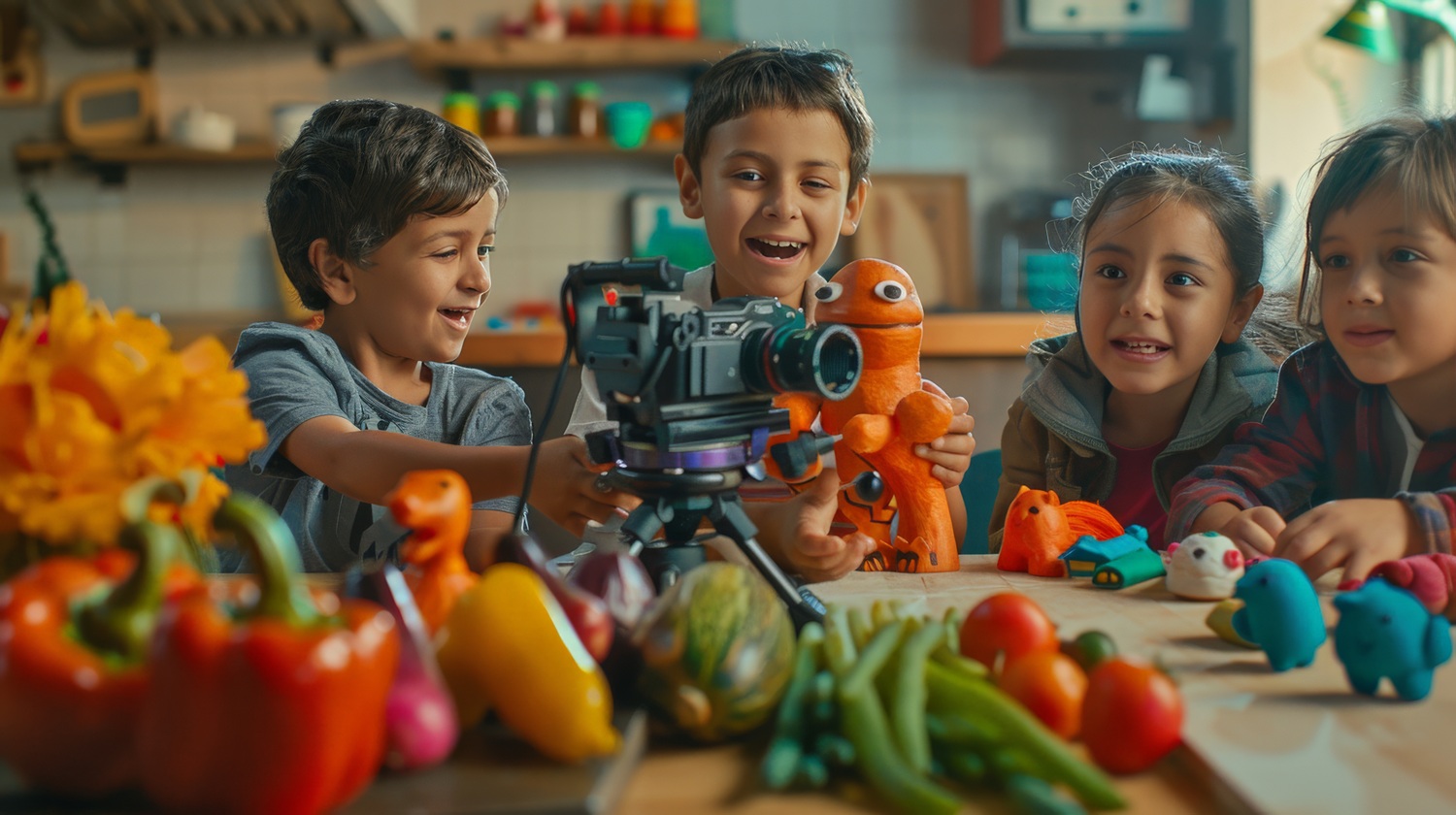
Have you ever noticed how preschoolers are like wet clay that is shaped by the situation around them? This period of early childhood is a crucial stage for social development, during which foundational skills begin to take root. Preschool social development extends far beyond simply learning to share toys; it encompasses the ability to communicate, cooperate, express emotions, and develop empathy through everyday play and interaction. These essential social skills not only help children make friends and resolve conflicts, but also prepare them to navigate the larger world with confidence. In this blog, we’ll explore what these skills are and how they impact their behaviour in the long run.
Cooperation is one of the fundamental pillars of preschool social development. During early childhood, children begin to understand the importance of working with others to achieve common goals, whether it's building a tower together or cleaning up after playtime. Through group activities that require multiple participants, preschoolers learn how to communicate effectively, listen to others, and contribute meaningfully within a group setting. Closely tied to cooperation is the concept of sharing and taking turns, which forms the foundation of healthy friendships. When children share toys or wait for their turn on the slide, they are not only practising patience but also developing empathy and mutual respect. These experiences teach young learners how to navigate social dynamics and help them form positive relationships with peers, an essential part of social development in early childhood.
Recognising emotions is a vital aspect of preschool social development, as it lays the foundation for empathy, the ability to understand and care about others’ feelings. As part of social development in early childhood, children who learn to identify emotions in others are better equipped to manage their emotional responses. Simple activities like reading storybooks and discussing characters’ facial expressions, body language, and likely feelings in different situations can help children grasp the idea that everyone experiences emotions. This growing emotional awareness encourages preschoolers to form close, supportive relationships and respond to others with kindness and compassion, a crucial step in their overall social development.

Learning to listen is a vital part of social skills in preschoolers, as it enables young children to build effective communication skills and develop emotional awareness. When adults model active listening, by paying attention, acknowledging children's feelings, and reflecting them, preschoolers begin to feel truly heard and understood. This not only strengthens their ability to express themselves but also encourages them to explore and make sense of their emotions. Responding with empathy and without judgment when a child is upset teaches them that their feelings are valid, while also guiding them toward identifying the cause of their emotions and developing healthy ways to cope or solve problems. Through these everyday interactions, children gradually learn to communicate more openly, listen to others in return, and build stronger, more meaningful relationships.
Also read: Developing Language Skills at Every Stage—Tips for Parents
Conflict resolution is a key aspect of , offering young children the chance to build essential interpersonal skills. In a preschool setting, conflicts, though frequent, are valuable teaching moments. Through everyday disagreements, children begin to learn how to express their feelings, listen to others, and find solutions together. As part of social development in early childhood, they start to understand concepts like negotiation, compromise, and fairness. Rather than avoiding conflict, guiding children through it helps them develop patience, empathy, and the ability to solve problems that form the foundation for healthy relationships and effective communication throughout life.
Self-regulation is a foundational skill in social development of a child, and while it can take a lifetime to fully master, the learning begins as early as preschool. In a structured environment surrounded by peers and guided by caring adults, children start to understand how to manage their emotions, control impulses, and adapt their behaviour to different situations. These daily opportunities to practice self-regulation, whether it’s waiting patiently for a turn, calming down after frustration, or following classroom rules, are essential components of social skills development. Research shows that children who begin developing self-regulation in early childhood tend to perform better academically and are less likely to experience behavioural challenges as they grow. By learning these skills early, preschoolers build a strong emotional and behavioural foundation that supports long-term personal and social success.
While making friends can be challenging, early childhood social development provides children with daily opportunities to build meaningful connections and understand the social cues that come with forming and maintaining friendships. In the supportive environment of a preschool classroom, children begin to navigate the give-and-take of relationships, learning to initiate play, share ideas, and resolve minor conflicts. These early experiences are crucial as the ability to make friends in early childhood is strongly linked to better social outcomes later in life. Interestingly, while preschool fosters independence, it also places a strong emphasis on teamwork. Through group activities, children learn the value of collaboration, understanding that working together often leads to greater success. This balance of individual growth and cooperative learning is a key aspect of social development in early childhood, helping children thrive both socially and emotionally.
At Beginners World, social development in early childhood is nurtured through a thoughtfully designed environment that balances safety, structure, and playful exploration. The preschool places a strong emphasis on social development, providing children with daily opportunities to build friendships, cooperate with peers, and healthily express emotions. Through play-based learning, such as role-playing, building activities, and group games, children naturally develop vital social skills like communication, empathy, and teamwork. With professionally trained educators and a warm, child-centric setting, Beginners World ensures that every child feels supported and valued, which is essential for positive social interactions. The school’s spacious, secure classrooms and outdoor areas encourage children to explore freely and engage confidently with others. By focusing on emotional intelligence and peer collaboration, Beginners World helps children lay the foundation for strong relationships and lifelong social success.